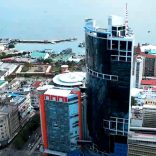AFDB approves $17 million to rebuild conflict-affected northern Mozambique
Frelimo Central Committee calls on govt “to inform the public of the debt of EMATUM and Pro-Indicus”

The Central Committee of Mozambique’s ruling Frelimo Party on Saturday called for measures to reduce public expenditure, including controlling the amount of fuel, electricity and other inputs used by the public administration.
In a statement on the country’s economic situation, read out at the end of a four day meeting of the Central Committee in the southern city of Matola, it also called for “strengthening internal control inside institutions for a determined fight against corruption and waste”.
There must be, the statement insisted, “a posture of integrity in the management of public assets”.
The Central Committee also called on the government “to consolidate fiscal transparency, with a particular stress on regularizing the public debt so that the country can continue to strengthen its good image”.
Currently the country’s image has been battered by claims that government-guaranteed loans for hundreds of millions of dollars have been concealed, even from the International Monetary Fund (IMF). In reaction, the IMF cancelled a mission that was to have visited Mozambique in the coming week.
The director of the IMF’s Africa department, Antionette Sayeh, said at a Friday press conference that the undisclosed loans exceeded a billion US dollars.
The Central Committee called on the government “to inform the public of the debt of EMATUM and Pro-Indicus”.
EMATUM, the Mozambique Tuna Company, ordered 30 ships (24 tuna fishing boats and six maritime patrol vessels) from a shipyard in Cherbourg, France in 2013. To pay for the boats EMATUM went to the European bond market, and sold 850 million dollars of “loan participation notes”. This bond was guaranteed by the Mozambican government, and so was fully subscribed, with the bondholders confident that they would get their money back, and at a high interest rate.
But, according to the French press, the 30 boats only cost 200 million euros (equivalent to about 230 million dollars). So what was the rest of the EMATUM bond used for?
It is possible (though far from certain) that it covered the debt of another state company, Pro-Indicus, that was handled by the same banks, Credit Suisse and VTB of Russia. This was money for more ships and for radar systems.
The Pro-Indicus loan was quite unknown until it was mentioned in an article in the “Wall Street Jounal” on 3 April. It even appeared to take by surprise the governor of the Bank of Mozambique, Ernesto Gove, who said he knew nothing of any such loan, and had never heard of Pro-Indicus. But on Saturday Maleiane confirmed that the loan existed, and amounted to 622 million dollars.
The Central Committee also urged the government to restructure publicly owned companies, and companies in which the state holds a share, in order to make them “more efficient, productive and lucrative”.
It should also continue with “the reforms necessary in order to improve the business environment, so as to attract private national and foreign investment”.
The Central Committee called for the establishment of a Permanent Emergency Fund and the mobilization of resources “for investments in infrastructure managing water resources in order to improve the forecasting and mitigation of the natural disasters which occur cyclically in our country”.
The statement urged the government to seek “endogenous alternatives that reduce dependence on the outside and stimulate economic activities that generate internal resources to improve our balance of payments.
The Central Committee also fixed the date and place for the next Frelimo Congress. This Congress, the Party’s 11th, will be held in Matola in September 2017. Frelimo congresses should take place every five years. The last Congress was in 2012 in the northern city of Pemba.












Leave a Reply
Be the First to Comment!
You must be logged in to post a comment.
You must be logged in to post a comment.